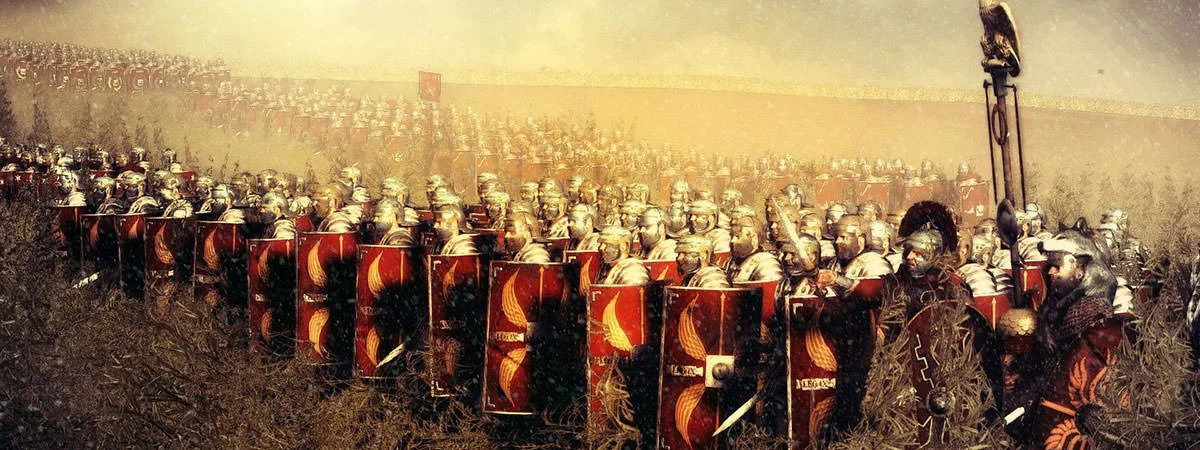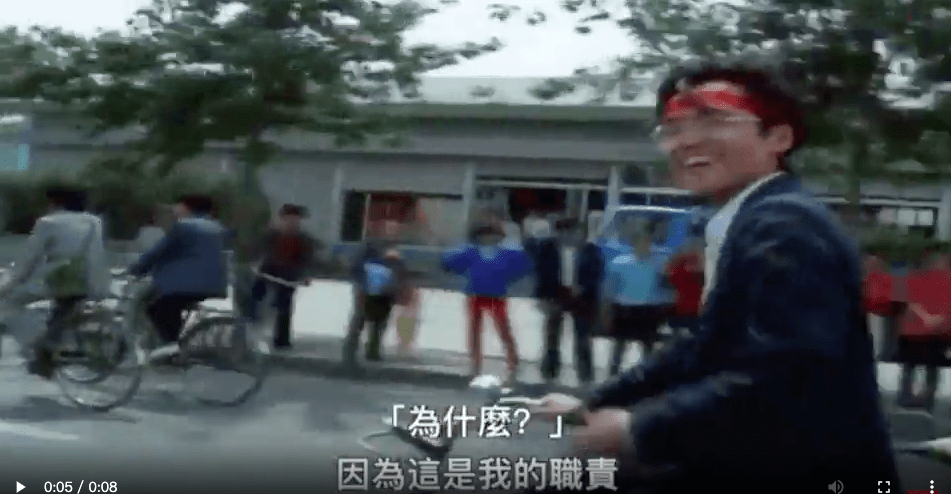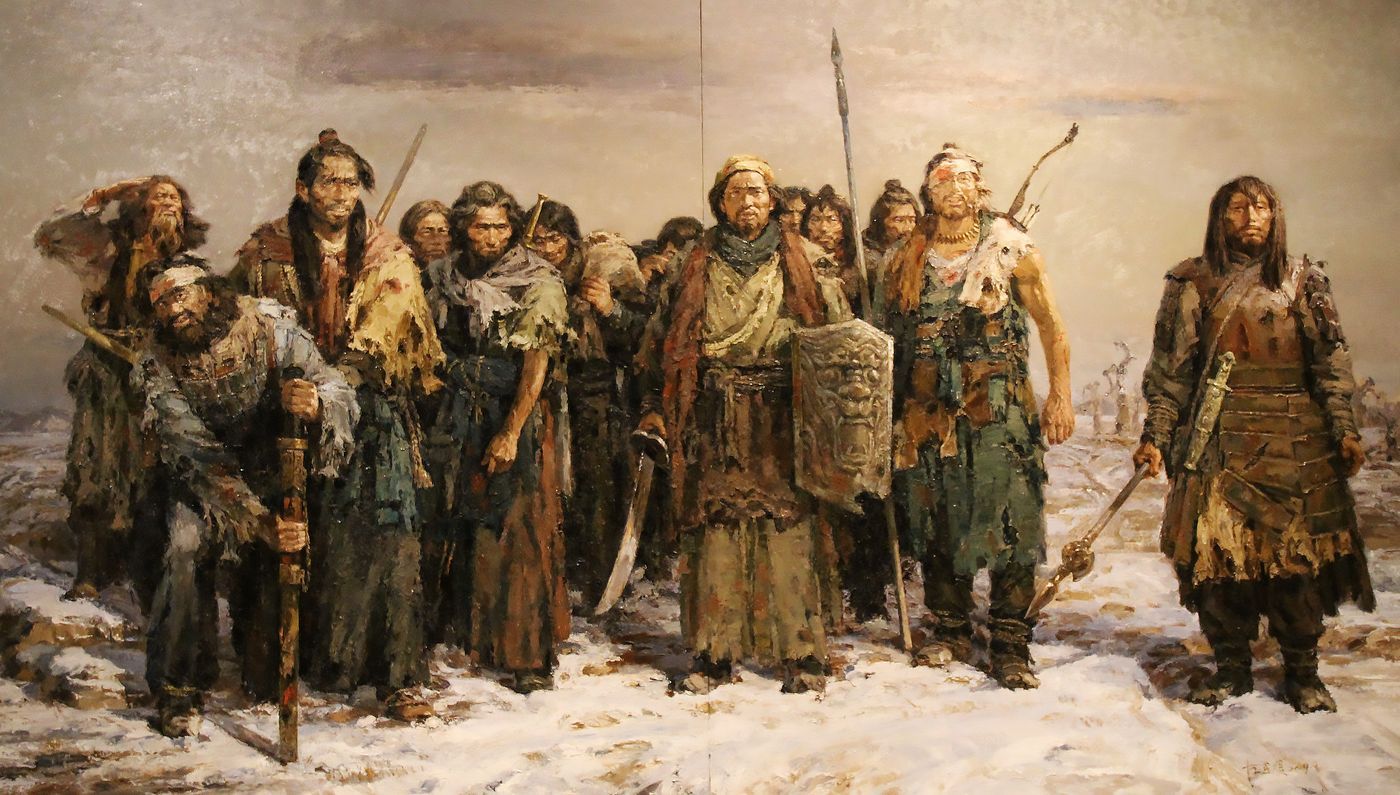
A traveler
Subject Consciousness and Citizen Consciousness: Reflections on the Origin of the Sage Monarch Complex (1)
I only started scrutinizing some of the ingrained ideas in my head around 2017, more precisely, prejudice. At that time, I had been over the wall for more than a year, and after finishing my master’s degree, I started working to earn money to support myself. Compared with student days, work has one advantage, that is, the time after get off work is completely at your own discretion, and there is no need to work overtime for homework exams. Because of this, I also came into contact with some things that were hated by the little pinks and the Wumao. Frankly speaking, it was not easy for me at that time to calmly listen to the "enemy Taiwan" and read the articles and books of the "anti-China forces". Those internalized and instinctive thinking reactions always make me feel uneasy and even tremble with anger at those accusations against China. Anxiety is worrying about whether China can survive in such a malicious external environment (I would not distinguish between China and the CCP at that time), and anger is disgusting the ignorance of "anti-China forces" about history and reality, especially "China's special national conditions" ignorance. The political atmosphere, way of life and people's sentiments in the Netherlands did not make me feel the benefits that the free world brings to individuals and society.
However, I was fortunate enough to find a group of people with complete knowledge structure and profound insight in the mixed "anti-China forces". Their vision and interpretation of some important issues opened the door to a new world for me. Points that were considered convincing within the walls were easily smashed by them using basic logic, and my emotions were melted away and I started trying to wake up. This gave me a sense of rationality at that time, and I sighed from the bottom of my heart: the life of letting go of prejudice and constantly introspecting is worth living. I once thought I knew Socrates and the happy pig, but then I realized that I had always been an unhappy pig.
In the blink of an eye, it has been almost five years since I went abroad, and I found a blog about programming casual thoughts. Unintentionally deified, when I read his article, the first shot that came to my mind was the image of Prometheus sculpted by Nicolas-Sébastien Adam in 1762 in the Louvre a few years ago. I believe this blogger will bring me continuous inspiration and happiness.
Today, I read " Psychological Analysis of the People of the Celestial Dynasty: The Sage King Complex " written by Caprice. The sage-monarch complex is to pin the hope of the country on the supreme ruler, so as to eliminate the accumulated evils, stabilize the society, and bring justice and happiness to the people. The author analyzes the two origins of the sage-monarch complex: subject consciousness and learned helplessness. "Subject consciousness" means that as the governed, one has obligations but no rights, and learned helplessness refers to giving up on one's own efforts to change the status quo due to too many failures and setbacks. The sense of irrelevance and powerlessness caused by these two can make people feel anxious, which triggers the fantasy in the psychological defense mechanism-creating a sage to avoid the anxiety and anxiety caused by the gap between the expected goal and the status quo. This complex provides the ruler with an excellent tool - to paralyze the populace, eliminate resistance, and maintain rule. The logical skeleton of the whole article is very clear, it would be better if there were more examples and more fullness. Strongly recommend everyone to read it.
What interests me is the subject consciousness. The author mentions that the concept opposite to subject consciousness is civic consciousness, i.e., the belief that one is the master of the state/society, with both rights and obligations. This is in stark contrast to the obligation and no rights of the subject consciousness. This is reminiscent of distant Roman times. Citizens, as the masters of the state (one of them), have rights such as the right to vote and receive tax incentives, as well as obligations such as paying taxes and performing military service. Citizens are often not compelled to perform these duties, but are driven by a sense of honor. The principle of the formation of the Roman army was that the main fighting force could only be legionaries composed of Roman citizens, and the auxiliary arms were composed of people from allied countries or conquered territories. The service period of the auxiliary soldiers is 25 years. When they retire, they will be granted Roman citizenship. Not only can their sons automatically become Roman citizens, but they can also be exempted from paying 10% of income tax for the rest of their lives. It can be said that only Roman citizens are eligible to shed blood for the country. The sense of honor and belonging that this brings allows Roman citizens to know that they are doing their duty to the community, and the legionaries formed by citizens know what the war is for. At the same time, the economic benefits of citizenship also allow Roman citizens to become citizens. Has an ongoing appeal among the auxiliaries. Over time, military service and citizenship became the link between the border provinces and Rome. This simple concept of fulfilling obligations and enjoying rights can be said to be a balance between pay and benefits, which invisibly injects vitality into this huge country that has lasted for nearly a thousand years.

It can be seen that the key to building civic awareness lies in maintaining the balance of civic rights and obligations. In a modern state, citizens work for the state or the community, and receive benefits such as the right to vote and the public services provided by the community. This sense of participation brings people a sense of being trusted and needed, a sense of honor, and motivation to take the initiative to care about public affairs. This is why civic-minded people tend to be enthusiastic about engaging in public affairs that seem less relevant to their own vital interests. For example, the author cites that every year, many people in Hong Kong spontaneously engage in commemorative activities for the "June 4th" anniversary. There is also the famous video in which a foreign reporter asked young people on bicycles why they went to Tiananmen Square, and replied, "because I think it's my duty." Direct interests, but they know it's for the community. Citizenship connects the individual and the collective in a delicate balance, showing how abstract values can underpin the social life of ordinary people. Such people will have the courage to face the problems in social life, face their inner unease, fear, inertia, make choices rationally, and have the courage to be responsible for their own choices. Therefore, there is no need to pin hopes on the Holy Monarch.

The subjects who paid the grain for the king's corvé service were often not voluntary. "Last night saw the military post, the khan ordered a large number of troops", the emperor recruited, and the grass people only obeyed. "Generals die in a hundred battles, and strong men return for ten years" is not without romance, but unfortunately most of them die in confusion. The king, on the other hand, has benefited enormously from the thousands of confused dead ghosts. Those who survived by chance sighed deeply and returned to their hometowns with rewards and honor. The king saw the weakness of human greed and fear, and used rewards and punishments to force his subjects to fulfill their obligations. The recognition of the ideological system "loyalty to the emperor is good" may bring a sense of honor to a few generals, but it is difficult for the subjects and militia to gain a sense of participation. The root cause is the imbalance of rights and obligations.

While today’s dynasty is still changing the soup without changing the medicine, there is only one special thing: the party recognizes the existence of the rights and obligations of individuals to the state in the modern sense, and at the same time cleverly packs the party and the state, making it difficult for people to distinguish between the ruler and the community. This facilitates the ruler to release the obligations of the ministers and the people while reducing the rights. As for how much to enlarge or reduce, it depends on the needs of the country (party) interests. People inside the wall pay no less tax than Western countries. When the Wuhan pneumonia came, Western countries gave money to citizens or enterprises to help the poor. The party not only did not give money or only a fraction, but instead asked people to donate money. As for where the donations are used by the party or the state, no one cares.
Since the party has the supreme status and unlimited power, naturally, it should assume unlimited responsibility for all problems. This gives the Chinese an excellent reason to exercise their inertia. Since the people of the country have no rights, the major and minor matters of the country have nothing to do with me, and I have no obligation to inquire. When confronted with injustice, either complain about the government, or indulge in "I will be the leader of the country...", and at the same time say schizophrenicly, "Chinese people need to be managed." As everyone knows, it is this subject mentality that pushes the savior to power. The great savior is not a saint, in fact, there is no saint at all. The more the savior cares, the more lazy the subjects will be. The lazier the subjects, the more they need a savior to take care of them. This cycle repeats until the system crashes.
Therefore, too few individual rights and too many obligations will destroy the balance, and it will be difficult to generate a positive interaction between the individual and the community. Over time, such a community will lose its vitality.
Dig a pit: What if the reverse is true, with more rights and less obligations? Talk to you next time.
Like my work?
Don't forget to support or like, so I know you are with me..
Comment…